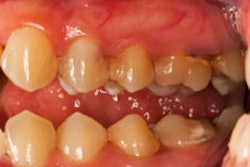An innovative new combination treatment that uses the measles virus to target cancer cells could significantly improve treatment for colorectal carcinoma and head and neck cancer (HNC), according to a new study in Radiotherapy & Oncology (July 11, 2013).
The preclinical study found that exposing cancer cells to a genetically modified measles virus, in conjunction with radioactive iodide, radiation treatment, and gene-targeting drugs, was much more effective than using any of the treatments separately.
The radiovirotherapy treatment -- using viruses to deliver radioisotopes to cancer cells -- could improve upon standard treatments for colorectal carcinoma and HNC, according to the study authors. Patients with these cancers are typically treated with radiotherapy, but the amount of radiation that can be used is strictly controlled to avoid damaging normal tissue.
For this study, researchers from the Institute of Cancer Research (ICR) in London used a cancer-targeting version of the measles virus known as NIS-expressing measles vaccine (MV-NIS), genetically modified to express a gene called sodium iodide symporter (NIS). The protein that the NIS gene produces causes cancer cells to take up radioactive iodide, which can also be used to treat cancer.
Previous studies have shown that oncolytic viruses such as MV-NIS can be combined with radioiodide to tackle cancer more effectively than either treatment alone.
The ICR scientists combined four different treatments: the MV-NIS virus, radioiodide, radiotherapy, and a drug called SAR-020106 -- a drug that limits cancer cells' ability to repair DNA damage. They tested the treatments in HNC and colorectal carcinoma cell cultures to find which combinations delivered the most radiation to the cancer cells.
In all the cell cultures, they found that combining the MV-NIS virus with radiotherapy had a stronger effect than using either treatment separately. They found similar increases in treatment effectiveness when they combined the drug SAR-020106 with radiotherapy treatment, the MV-NIS virus with SAR-020106, and MV-NIS with radioiodide.
When they tested the combined treatment of MV-NIS, radiotherapy, and SAR-020106 on mice with HNC tumors, they found the combination was much more effective than standard radiotherapy alone. More than half the animals survived to 60 days, compared with an average survival of 35 days for radiotherapy alone.
The researchers saw the greatest improvement in survival when they added radiodide to the treatment mix, they noted.



















